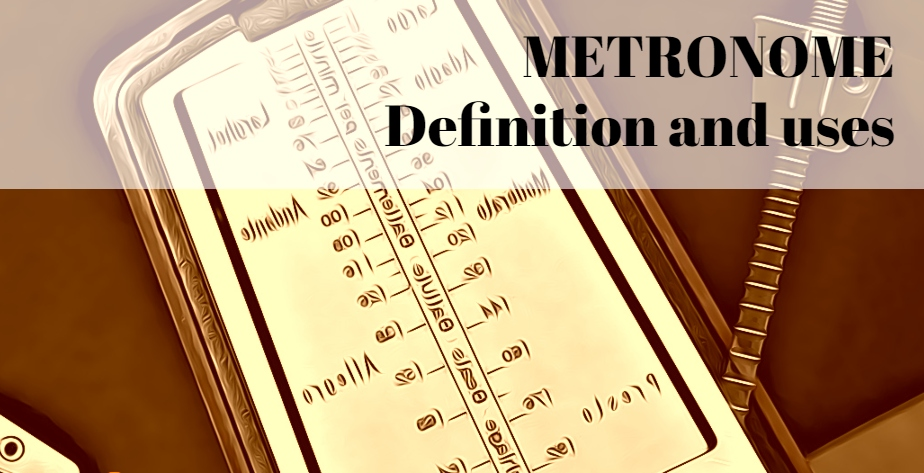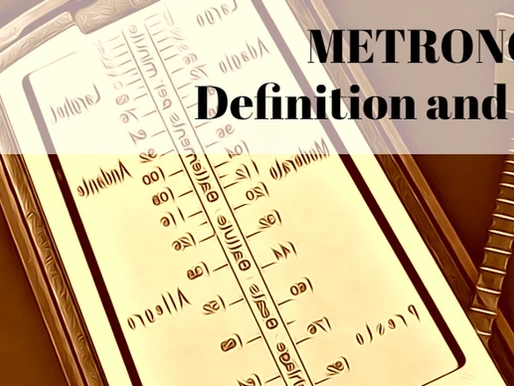Uncategorized
Learning in London: What Is a Metronome and How Can It Aid Piano Lessons?
How to use a Piano Metronome?
There are a number of benefits that come from learning the piano, including stress relief and enhanced neural connections. However, many struggle with getting down the basics or keeping rhythm on more advanced pieces of music. This is when it helps to know what is a metronome.
This interactive metronome is one item that can dramatically help a budding piano player, especially in those early days, think of what today is a timer online.

What is a Metronome?
The usefulness of a metronome has stood the test of time. In fact, this little device has been around for centuries.
Even Beethoven relied on his handy metronome to help him keep rhythm when composing and performing his pieces.
The power of this tool comes in a surprisingly simple package. While metronomes may vary in weight, size, and design, they all perform the same function.
A bpm metronome uses measured beats-per-minute (commonly shorted as bpm or ticks) to keep the tempo in a piece of music. This improves the timing of the musician as they perform, and prevents some from either speeding up or slowing down.
Eventually, with frequent use, the pianist is able to listen for the tempo on their own and control the piano speeds. However, your metronome may make an appearance throughout your career as a musician.
Different Types of Metronomes
After being around for centuries, it’s only natural that the metronome would undergo a few makeovers.
Here we’ll take a closer look at the evolution of the metronome, and how it has benefitted musicians, so you can choose the best piano metronome for you.
– Analogue (Mechanical) Metronomes
The original metronomes were crafted out of wood and had an analogue structure. They typically needed to be wound up in order to work.
While they may have been the originals, don’t write this classic off just yet. A number of musicians still rely on this model thanks to its sturdy structure and its ability to be used without batteries or electrical chords.
– Digital Metronomes
Later on, metronomes took on a digital format and began to offer musicians a host of additional benefits.
Through digital metronomes musicians could now use headphones, follow visual cues and even choose the kind of click sound they would hear.
The digital metronome also resulted in even more options for sizes and styles.
Some of these models include:
Earpiece metronomesPedal metronomesClip-on metronomesCredit card metronomes
With more evolving each day. This gives musicians some options when it comes to practising and even playing live without missing a beat.
– Phone Apps
Thanks to the creation of the smartphone, metronomes can often be found in the forms of android or iPhone apps. These apps come with a slew of options regarding visuals, sound options, and even recording.
They remove the need for musicians to carry yet another piece of equipment, can easily sit on a surface and are incredibly discreet.
How to record with a proper metronome? Best metronome:
Which Metronome is Right for You
If you’re looking to purchase your own metronome, it’s wise to weigh your options. Mechanical metronomes come with some great benefits like the ability to run without batteries, easy use, and a more classic look.
However, they may lack the functionality, visual cues and additional features you may require as a musician.
Digital metronomes come with their fair share of pros and cons too. For example, you may forego the extra functionality for the ability to quickly change tempo. You may also prefer a cleaner metronome sound than the options that come with digital.
It truly depends on your own preference, and if you’re working professionally what your employer will allow.
Other Helpful Tools for Playing the Piano
If you’re looking to enhance your piano playing skills, there are many tools you can incorporate in addition to a metronome.
Flashcards are a great way to help you read music notes by sight, and can easily be practised even if you’re away from your piano.
Many musicians also use chord charts to familiarize themselves with more challenging chords and scales.
If you have trouble making the habit, then make an effort to track your routine. You can use a practice log or one of the many habit tracking apps available to help you make piano practise a daily ritual.
A good book of scales is also a must for any budding pianist. Even when you feel you’ve gotten your bearings, practising your scales helps establish a strong foundation.
The Help You Need to Enhance Your Piano Skills
Learning important elements of piano, like what is a metronome or which tools can benefit your practice, is essential when starting out.
You’ll find that each pianist has their own style and lean on different tools to guide them. A consistent way to enhance your piano skills is to have discipline, passion and a great teacher.
Attending classes on a regular basis takes piano playing from a hobby to a practice and helps you focus on the primary principles of piano playing.
It’s these principles that will help you learn advanced pieces and even compose your own music one day.
If you’re still looking for the right teacher and music classes to help you enhance your skills, then it’s time to look into Piano Lessons London.
Our lessons are specifically structured to help any level of piano player take their piano skills to the next level, whether you’re just starting out or have been playing your entire life.
Not sure if Piano Lessons London is right for you? Give us a call for more information on our courses and what we offer.
#metronome #bpmmetronome

